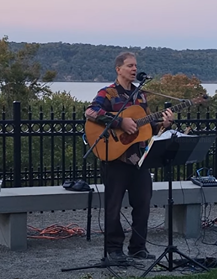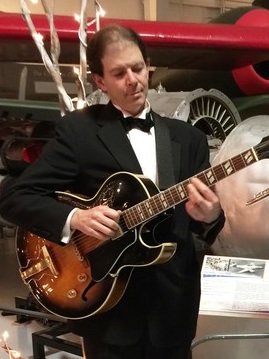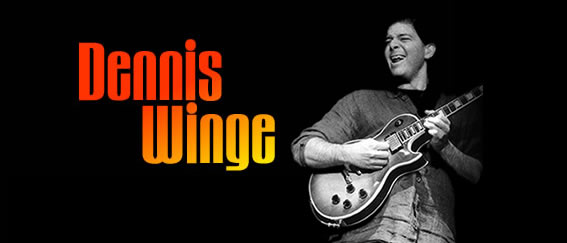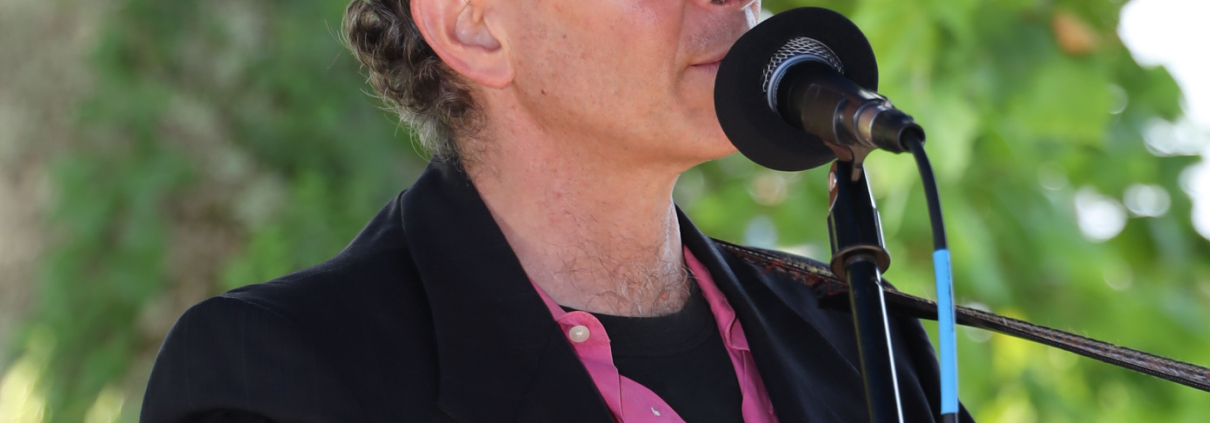The Emotional Impact of Solo Guitar and Voice
 In the hushed tones of an acoustic guitar and the tender embrace of a heartfelt voice, a unique musical journey unfolds—one that transcends the ordinary and dives straight into the soul. Unlike full bands or electronic productions, this setting strips music to its purest form, leaving nothing but honesty and vulnerability. In this blog post, we embark on an exploration of the emotional power and intimacy that lie within the realm of solo guitar and voice performances, discovering why they resonate so deeply with both listeners and performers alike.
In the hushed tones of an acoustic guitar and the tender embrace of a heartfelt voice, a unique musical journey unfolds—one that transcends the ordinary and dives straight into the soul. Unlike full bands or electronic productions, this setting strips music to its purest form, leaving nothing but honesty and vulnerability. In this blog post, we embark on an exploration of the emotional power and intimacy that lie within the realm of solo guitar and voice performances, discovering why they resonate so deeply with both listeners and performers alike.
The Essence of Music
Solo guitar and voice performances reveal the essence of music in a way that few other formats can. When all the layers of instrumentation are peeled away, what remains is a dialogue between two voices: the guitar and the human spirit. The acoustic guitar provides gentle melodies, rich harmonies, and rhythmic grounding, while the vocals pour out raw emotion. Together, they create a canvas upon which the human experience is painted.
This stripped-down approach allows the music to speak directly to the listener. There are no distractions, no elaborate production techniques, no flashing lights—only the essence of sound and meaning. It’s music in its most elemental form, a reminder that even the simplest arrangements can carry profound depth and beauty.
Capturing Human Emotion
The beauty of pairing guitar and voice lies in its ability to capture the full spectrum of human emotion. The six strings of the guitar mirror the highs and lows of the human heart, while the voice conveys the subtleties of joy, grief, longing, and love. A single strummed chord can feel like sunlight breaking through clouds, while a minor arpeggio can pull the listener into moments of reflection or melancholy.
Whether it’s the joyous strumming of an upbeat tune, the whisper of a quiet lullaby, or the aching pluck of a heartfelt ballad, the guitar provides a rich and ever-changing backdrop. On top of this foundation, the human voice tells stories that words alone cannot capture. The combination is both powerful and delicate—capable of moving audiences in ways that linger long after the performance ends.
The Intimacy of Performance
Perhaps the most compelling aspect of solo guitar and voice is its intimacy. There’s nowhere to hide, which makes the performance feel raw and deeply personal. Every note, every breath, every silence is felt and shared between performer and listener.
This intimacy is also what I personally love most about performing in this way. You really get inside the song and appreciate it at its bare-bones level. Every chord, every melodic fragment becomes magnified. As a performer, it’s a fun challenge to represent all the accompaniment parts on only six strings—bass, harmony, rhythm, and melodic interjections—all while letting the voice soar above it. To make it work, I often find myself keeping the chords quiet so the single-note lines don’t lose velocity. That balance between delicacy and drive is part of what makes the format so endlessly fascinating to me.
Crafting Evocative Renditions
One of the most rewarding parts of performing solo guitar and voice is the opportunity to craft evocative renditions of familiar songs. A well-known tune can be stripped down, rearranged, and reinterpreted to reveal hidden layers of meaning. By slowing down a fast song, shifting its harmony, or emphasizing different lyrical phrases, the performance can offer a fresh perspective that resonates in new ways.
This process is not just about technique—it’s about empathy and imagination. Each note and phrase is chosen with care, with the goal of evoking feelings and memories that strike a chord with the audience. The art of reimagining familiar material is what makes each performance unique, ensuring that even the most well-loved songs feel like they are being heard for the first time.
Music Without Boundaries
Music has no borders, and solo guitar and voice performances embody this universality. The format transcends genres, generations, and cultures. A folk ballad can stir the heart of a jazz aficionado, while a simple pop tune can bring joy to someone who grew up with classical music. The guitar-and-voice combination speaks directly to the heart in a language that is instantly understood.
This universality is one of the most powerful aspects of solo performance. It brings people together, no matter their background, creating shared experiences that cross cultural lines. In a world often divided, music offers a rare space where differences fade away and common ground is found.
The Lasting Impact of Simplicity
There is something unforgettable about hearing a song performed with only guitar and voice. The simplicity creates honesty, and the honesty creates impact. These performances often linger in the memory long after the last chord fades, becoming the soundtrack to personal experiences and cherished moments.
Listeners often describe such performances as transformative—where time seems to stop, and the music leaves a lasting imprint on the soul. This is the power of simplicity: by removing everything unnecessary, the performance highlights the emotional truth at the core of the music.
Bridging the Gap Between People
In today’s fast-paced and often disconnected world, music becomes more than entertainment—it becomes a bridge. Solo performances bridge the gap between performer and audience, between strangers and friends, between the inner world of the artist and the shared humanity of those listening.
becomes a bridge. Solo performances bridge the gap between performer and audience, between strangers and friends, between the inner world of the artist and the shared humanity of those listening.
For me, this is at the heart of why I perform. Every song is an offering, an attempt to connect and to remind people that they are not alone in their experiences. By sharing my interpretations of both classic and contemporary songs, I strive to foster moments of community and understanding through the universal language of music.
Conclusion
As melodies weave through the room and lyrics take root in the heart, solo guitar and voice performances stand as testaments to music’s enduring power. They demonstrate how art can foster connection, evoke emotion, and leave indelible marks on the human spirit.
The power of these performances lies not in their complexity, but in their honesty—the ability to convey deep emotions and create intimate, unforgettable experiences. At their best, they remind us of the very essence of music: to express, to connect, and to heal.
—
If you’re thinking of having live musicians at your next event, book a free music consultation with me or tell me details about the event via the contact page.



